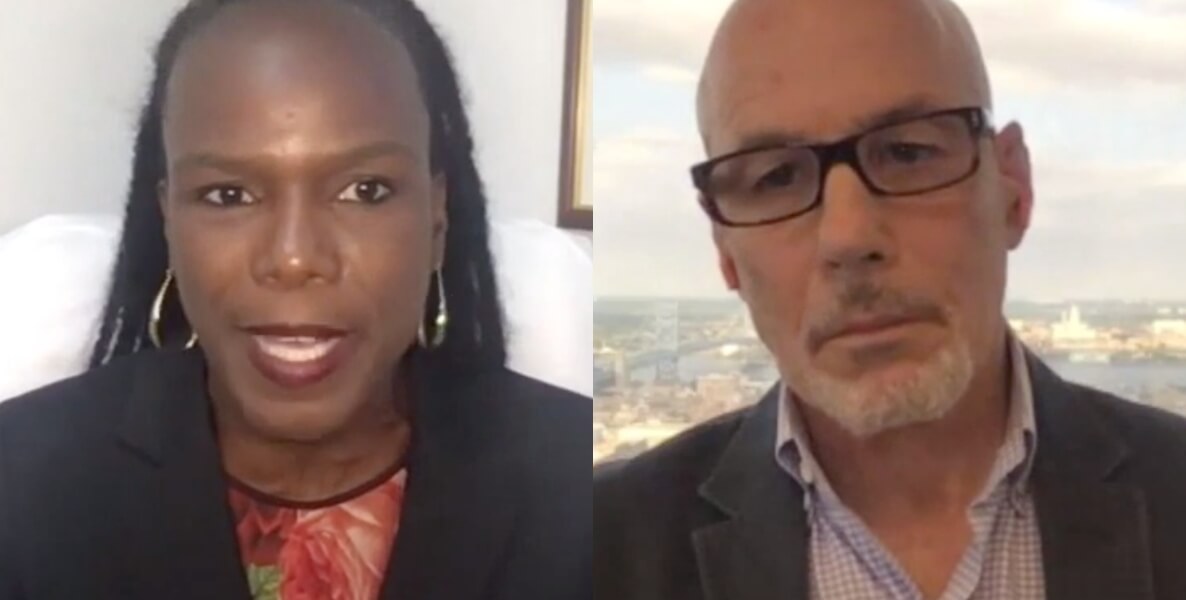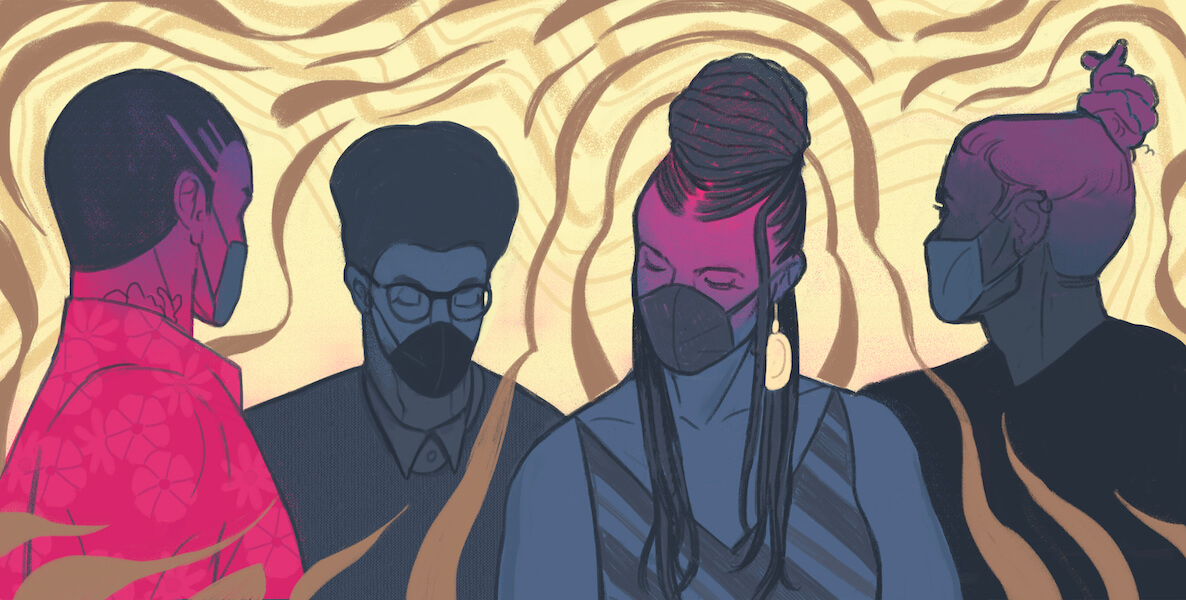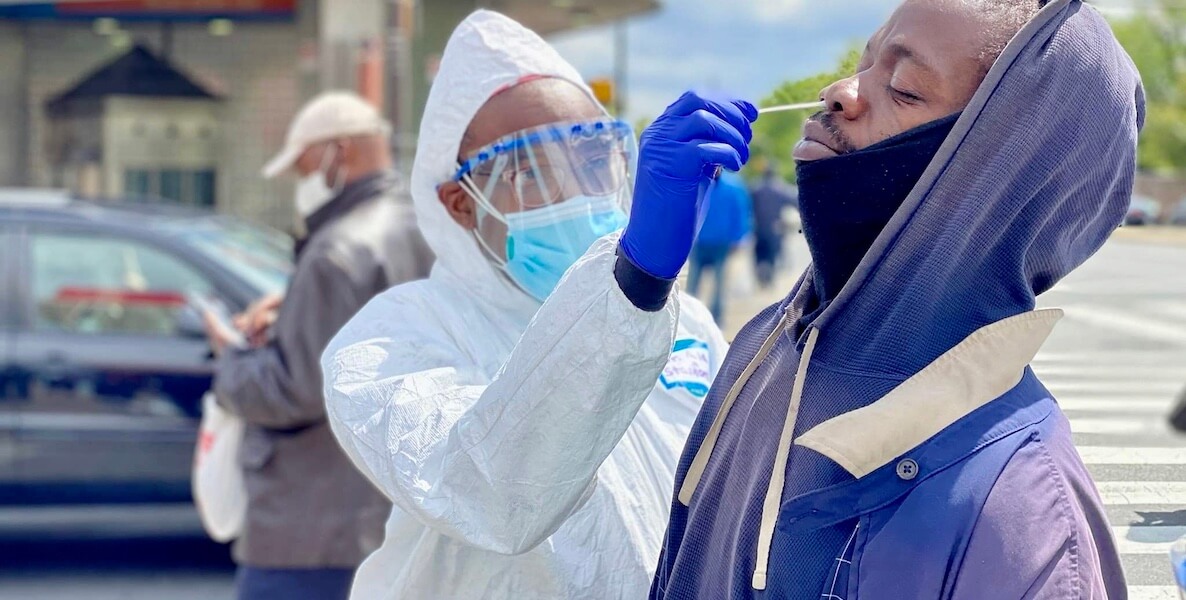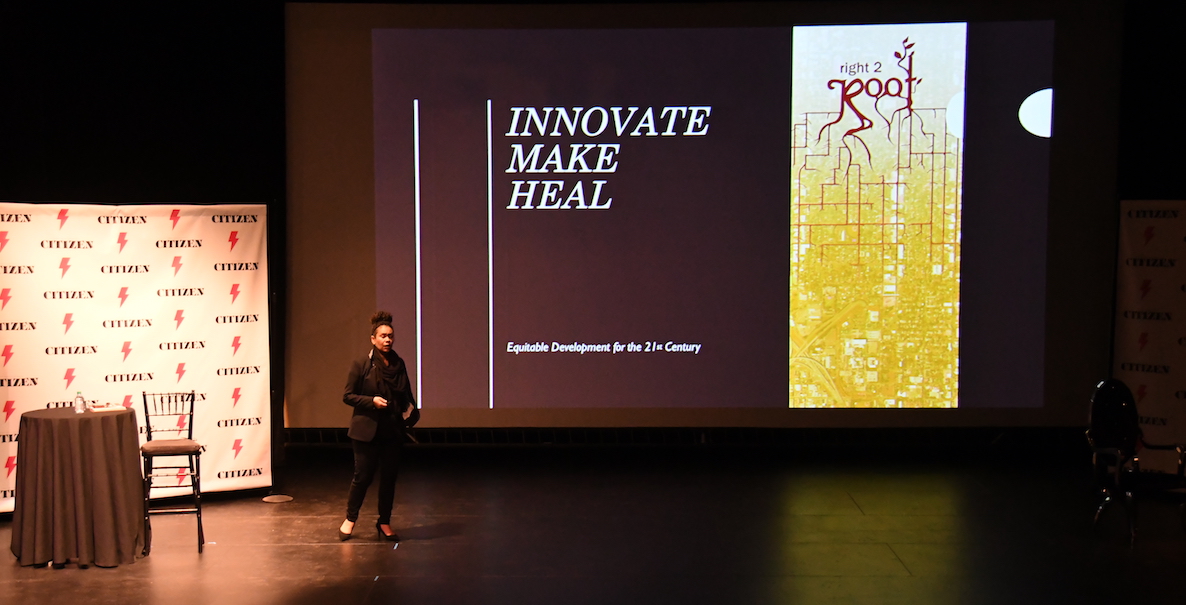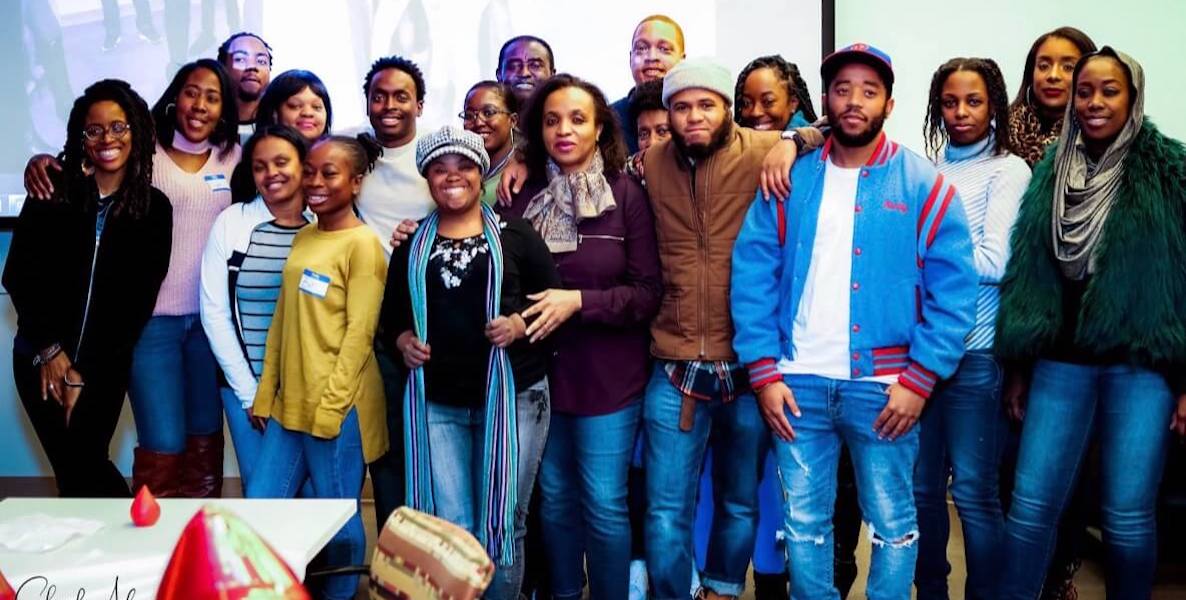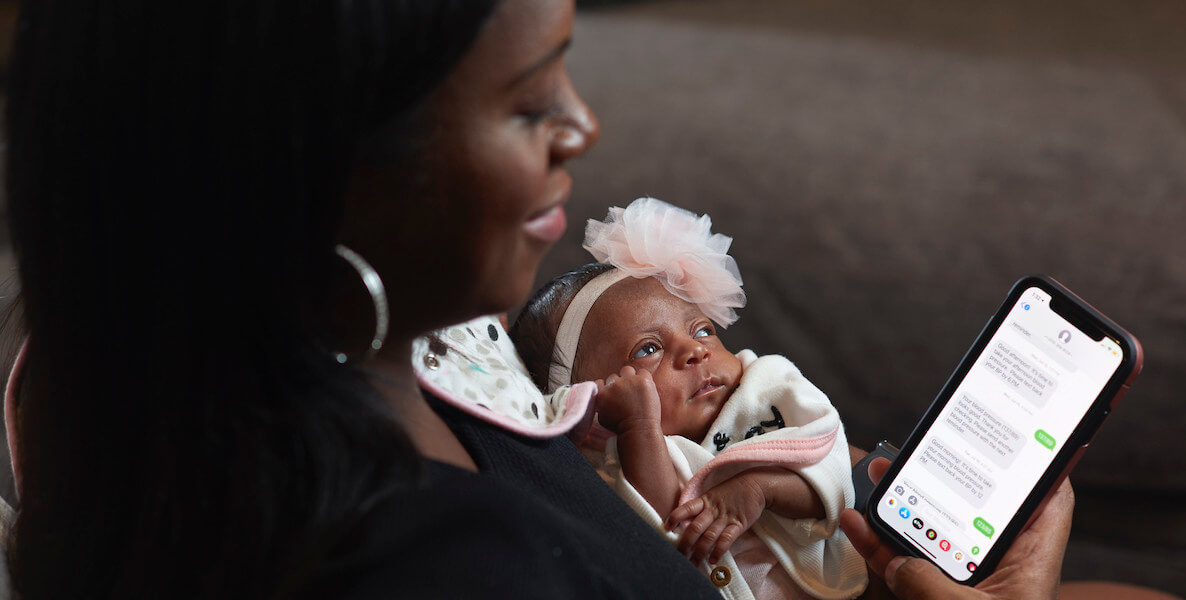Some people think of sickle cell disease (SCD) as an invisible illness. You can’t tell someone has it just by looking at them.
But the genetic disease, which afflicts about 100,000 Americans, most of them Black, can wreak havoc on the physical and emotional well-being of those who are born with it.
It can cause debilitating pain, exhaustion and dehydration, as well as weakness and headaches. SCD patients frequently end up in the hospital due to acute pain, for intravenous hydration, or with infections that manifest with flu-like signs. Symptoms of SCD, and side effects of medicines used for patients with SCD, can cause patients to miss school or work for days on end.
It also, until recently, led to an early death, with life expectancy between 20 and 25 years old. Now, thanks to new advances in medicine like gene therapy and HydroxyUrea, a chemotherapy drug that produces fetal hemoglobin F blood cells to keep red blood cells intact, patients are living well into their 60s.
“One real challenge is experiencing new complications from the disease as you get older, which has been really hard for me. You feel like I’ve finally figured this thing out, then sickle cell is like ‘nah, we still got new things to show you,’” he says.
It’s life-changing news for patients and their families. It has also led a whole new world of needs and concerns for those patients living well into adulthood with an oft-overlooked disease. And with SCD in the U.S. predominantly affecting African Americans—approximately one out of every 365 Black people born in the U.S. has SCD—many patients say they haven’t received the resources or attention other genetic and chronic diseases do.
“Some diseases are ‘sexy’ and for so long sickle cell wasn’t ‘sexy’ enough for people to really care about it,” says Kyle A. Smith, a local SCD patient in his late 20s. “Now that there are drugs being developed for sickle cell disease, we’re ‘sexier.’ People are starting to care a little bit more.”
Tackling bias in health care
This summer, Smith, Tahirah Austin, and Ediomi Utuk-Lowery, SCD patients now in their 20s and early 30s, launched Crescent Foundation, to support, educate, and advocate for Black people living with SCD who are transitioning from pediatric care to adult care, and to spark conversations among patients and health care workers about the treatment of Black bodies in health care. (The name pays tribute to the banana-shaped red blood cells that are a hallmark of SCD.)
“This disease is not a Black disease globally, but here in the U.S., the majority of people who have this disease are Black. Seeing people who have other diseases have some type of curative treatment and therapies, and for us to always be pushed into the shadow, I think that there has to be some type of understanding that these biases do exist because of the color of our skin,” Smith says.
The launch comes at a time when an understanding of racial disparities in health care are finally taking center stage, in part because of Covid-19, and its disproportionate effect on African Americans. Increasingly, Black people are speaking up about their negative health care experiences—like having their symptoms ignored, pain doubted, and autonomy denied.
In their day jobs, Smith is assistant director of development at Drexel University; Austin is a hematology community health worker at CHOP; and Utuk-Lowery is a marketing consultant at American Express. Given their combined personal and professional connections, they feel poised to have a real impact on their overlooked community.
Connecting with doctors
With initial funds from Penn Medicine and Global Blood Therapeutics Group, a pharmaceutical company, they plan to adopt a multifaceted approach to education, targeting patients, medical students and practicing physicians.
In Philly, patients whose SCD has been managed by CHOP are guided to adult hematology specialists once they hit age 22. But some feel like they’re in a no-man’s-land, being cared for by their pediatrician well after adolescence.
Many patients who’ve developed strong bonds with their pediatric physicians, who they’ve known from early childhood into adulthood, do not have the same kind of deep and holistic relationships with their adult care providers.
Consider the plight of Austin, now a mother. “As an adult, I’ve had more issues with acute chest syndrome, which is a type of pneumonia. And then after I gave birth to my daughter I developed some kidney issues that haven’t resolved,” she says.
Soon-to-be mothers with SCD are labeled high-risk patients, making their management both pre- and postnatally an area where they need the support of peers and physicians. Crescent Foundation wants to secure the safety of these patients by creating safe spaces for them to speak up when it comes to the lack of information and resources about their unique motherhood trajectories.
Smith sees the potential for the foundation to help patients with the mental health aspect of their disease as well. “For so long, I experienced complications that were not only physically painful, but also emotionally and mentally painful. Having a comprehensive understanding of what my disease was and how it was impacting my body and my lifestyle was not necessarily the easiest thing, especially when I got into my adolescence,” he says.
He hopes to be able to provide the SCD community with the resources that would make seeking mental health services accessible to adults and those transitioning from pediatric to adult health care facilities.
By forging connections with therapists at Penn Medicine, CHOP, and throughout the city of Philadelphia who specialize in working with Black patients, Smith wants the SCD community to know there are experts who are there for them.
Raising awareness
Utuk-Lowery hopes to demystify and destigmatize SCD among people who don’t have it. She recalls how isolating it was as a child to have special medical needs.
“In school, I was the one with the water bottle [to combat dehydration, which in SCD patients can lead to blood cells sticking together], when nobody else had a water bottle. Now water bottles are a thing, like it’s ok to come to school with them, but we had to get written permission from our doctors, take them to our school principal, who then would have to take them to the school nurse and give us a note. It was a very complex experience growing up.”
“Until deaths in the sickle cell community have decreased, and new medicines are obtainable without all of the bureaucracy, when that’s not a worry of mine, I’ll rest,” says Austin. “But until then, I’ll keep working.”
She sees the power in normalizing this disease for people who are unfamiliar with it by holding conversations in medical colleges, high schools and grade schools where students may not realize that their peers live with it.
She says it’s important to educate people who are unfamiliar with SCD about how it can affect day-to-day living, how it’s genetically passed down and what we can do to advocate as a community.
Smith says that no matter how familiar SCD patients are with the current state of their disease, there is always more to learn. “One real challenge is experiencing new complications from the disease as you get older, which has been really hard for me. You feel like I’ve finally figured this thing out, then sickle cell is like ‘nah, we still got new things to show you,’” he says.
He hopes to reach patients through both local and, eventually, global outreach, that will raise awareness about life with SCD. He also plans to launch educational seminars that will put Crescent Foundation community members in environments where they can teach the next generation of physicians about the firsthand experience of life with SCD.
The friends first met through CHOP’s (now defunct) Camp Free To Be Me, a two-week summer program for kids with SCD that allowed them to experience the joys of camp while under the supervision of instructors who knew how to care for kids with the disease. They first conceived of the idea for a foundation in 2016.
While the pandemic has put their in-person plans on hold, they are hosting ongoing webinars with leading doctors in Philadelphia in the SCD field, getting ready for their website launch for late August, and planning a social media takeover during the month of September (SCD awareness month) to build community and get people excited about what’s in store for the Crescent Foundation community.
“We won’t stop until sickle cell is talked about as much as health issues like HIV or like breast cancer. Crescent will do all that we can to be a resource and a support system for those living with sickle cell disease, and their families. Until deaths in the sickle cell community have decreased, and new medicines are obtainable without all of the bureaucracy, when that’s not a worry of mine, I’ll rest,” says Austin. “But until then, I’ll keep working.”
Photo courtesy Crescent Foundation


